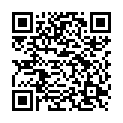|
|
|
| Module code: BAP8505 |
|
|
- |
|
5 |
| Semester: 5 |
| Mandatory course: yes |
Language of instruction:
German |
Assessment:
Practical work experience
[updated 01.10.2020]
|
BAP8505 (P311-0102) Health Care, Bachelor, ASPO 01.10.2012
, semester 5, mandatory course
BAP8505 (P311-0102) Health Care, Bachelor, ASPO 01.10.2014
, semester 5, mandatory course
|
|
The total student study time for this course is 150 hours.
|
Recommended prerequisites (modules):
BAP2102 Understanding Patient Needs
BAP2203
BAP2204 Care in Selected Phases of Life
BAP3201
BAP3302
BAP3403 Models, Concepts and Theories of Nursing and Caregiving
BAP3404 Understanding Research Methods and Procedures
BAP4402
BAP8101
BAP8202
BAP8303
BAP8404 Practical Training Module IV
[updated 14.04.2022]
|
Recommended as prerequisite for:
BAP8606
BAP8707 Practical Training Module VII
BAP8808
[updated 14.04.2022]
|
Module coordinator:
Studienleitung |
Lecturer:
Anke Kochems-Becker, B.A.
htwsaar extern
htwsaar intern
[updated 14.04.2022]
|
Learning outcomes:
After successfully completing this module, students will:
- possess transferable knowledge about method-guided case understanding.
- have internalized the systematics of hermeneutical case understanding as a basic requirement for professional care.
- have learned to take a questioning, (self-)reflective attitude with regard to the perceived singular-case-specific characteristics of the patients/patients in need of care.
After successfully completing this module, students will have acquired the skills to accompany people of all ages and their caregivers in the case of incurable illness and to support them according to their needs. The examination of incurable illness, pain, dying and death takes place in reflection of one´s own experiences and horizons of meaning.
- Students will have acquired a basic understanding of the ethical dimension of nursing care.
- They will be professionally competent in ethical (nursing) care. They will be able to identify and systematically analyze ethical dimensions in concrete contexts.
- They will have acquired well-founded theory-based and practice-oriented professional competence with regard to the connections between society, prevention and the preventative aspects of caregiving.
- They will understand the concept of prevention and its objectives and will be able to differentiate it from health promotion measures
[updated 01.10.2020]
|
Module content:
- Common oncological diseases, diagnostics, therapy and care of life-shortening diseases
- Principles of palliative care
- Treatment and quality criteria for the individual, needs-oriented care of patients and their relatives/affiliates in accordance with the care guidelines of the Nursing Section of the German Society for Palliative Medicine (Deutschen Gesellschaft für Palliativmedizin):
- Special pain management
- Conducting conversations with dying and mourning people
- Socio-cultural aspects
- Powers of attorney and patient decrees
[updated 01.10.2020]
|
Teaching methods/Media:
- Exploratory project "Fields of prevention associated with nursing" ("Pflegeassoziierte Präventionsfelder")
- Observation project "Ethical challenges in practice and possible solutions" ("Ethische Herausforderungen im Praxisfeld und Lösungsansätze")
- Work assignment "Selective instruction and accompaniment in the care of a seriously ill person or person in need of the most intensive care" ("Punktuelle Anleitung und Begleitung bei der Pflege eines Schwerstkranken bzw. Schwerstpflegebedürftigen Menschen")
- 3 practice-related study days
[updated 01.10.2020]
|
Recommended or required reading:
The current module reading list is handed out by the lecturer.
[updated 01.12.2020]
|


